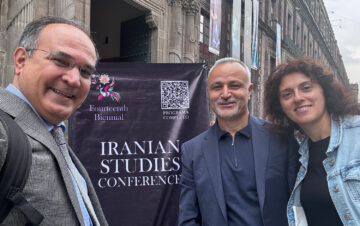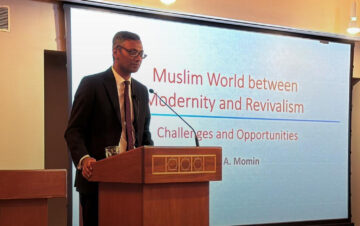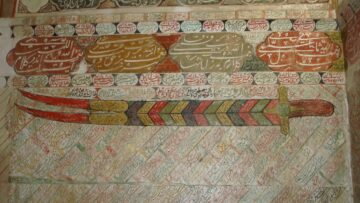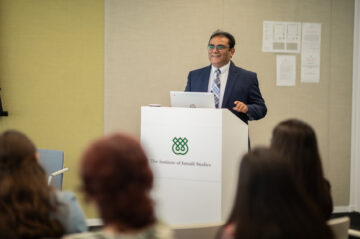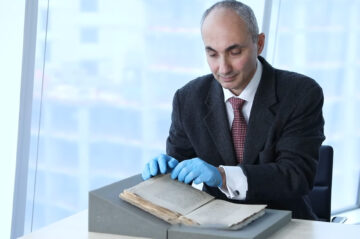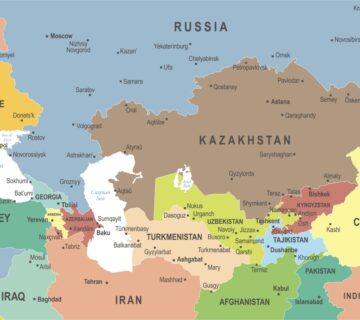In his keynote address, Professor Nanji stated: “This is a particularly significant time for a discipline like Gujarat Studies to emerge. If one looks just at the range of papers we have, Gujarat Studies is no longer located in one space in the Subcontinent; one doesn’t study Gujarat Studies simply because it relates only to Gujarat, and that is what is important. It is not the geographical space that defines what it is that we are doing, but it is the ecology that emerges, the ecology of culture that grows out of that space and which creates new areas of inquiry for us. Gujarat Studies is fascinating because it intersects with much of what we have done in the past; it opens up possibilities of doing many more interesting things in the future. We should ensure that this space remains as broad and as intellectually dynamic as possible.”
The conference brought together for the first time, many distinguished scholars who engage in research related to Gujarati cultures and communities, including those Gujarati communities that have evolved geographically away from Gujarat. Over the course of two days, 33 speakers from Europe, North America, India, Pakistan, Israel and the UAE, shared their research and findings on Gujarati communities, creating an interactive and engaging forum with the other scholars and guests in attendance. Topics of discussion and debate revolved around: Religion and Spirituality; Migration, Globalisation and Identity; Law, Politics and Violence; Changing Spaces and Places; and Language, Literature and Media.
Dr Anjoom Mukadam, President of the GSA, made reference in her introductory remarks to the statue of Mahatma Gandhi located in nearby Tavistock Square – a Gujarati individual whose work has inspired masses of people and whose efforts have contributed to the betterment of people around the planet, not just Gujaratis. The GSA is striving to create an academic body which acts as a forum for co-operation between academics and Gujarati communities, and actively promotes and collates the research, publications and ideas relating to Gujarat and Gujarati communities.
Vice-President of the GSA, Dr Sharmina Mawani, also an IIS alumna, commented that the impetus for establishing the association was the visible gap in the field of academia – there are many academic associations related to South Asia, but nothing specific to the Gujarati Community.
The Gujarat Studies Association was co-founded by Dr Anjoom Mukadam and Dr Sharmina Mawani in May 2005, with assistance on the Executive Board by Ms Salima Mawji and Mr Mitesh Kotecha, and supported by its Patron, Lord Professor Bhikhu Parekh as well as advisors including Professor Christopher Shackle (SOAS), Professor Itesh Sachdev (SOAS), Professor Azim Nanji (IIS) and Dr Rachel Dwyer (SOAS). The GSA is an academic network aimed specifically at the study and research of Gujarat and Gujaratis.

